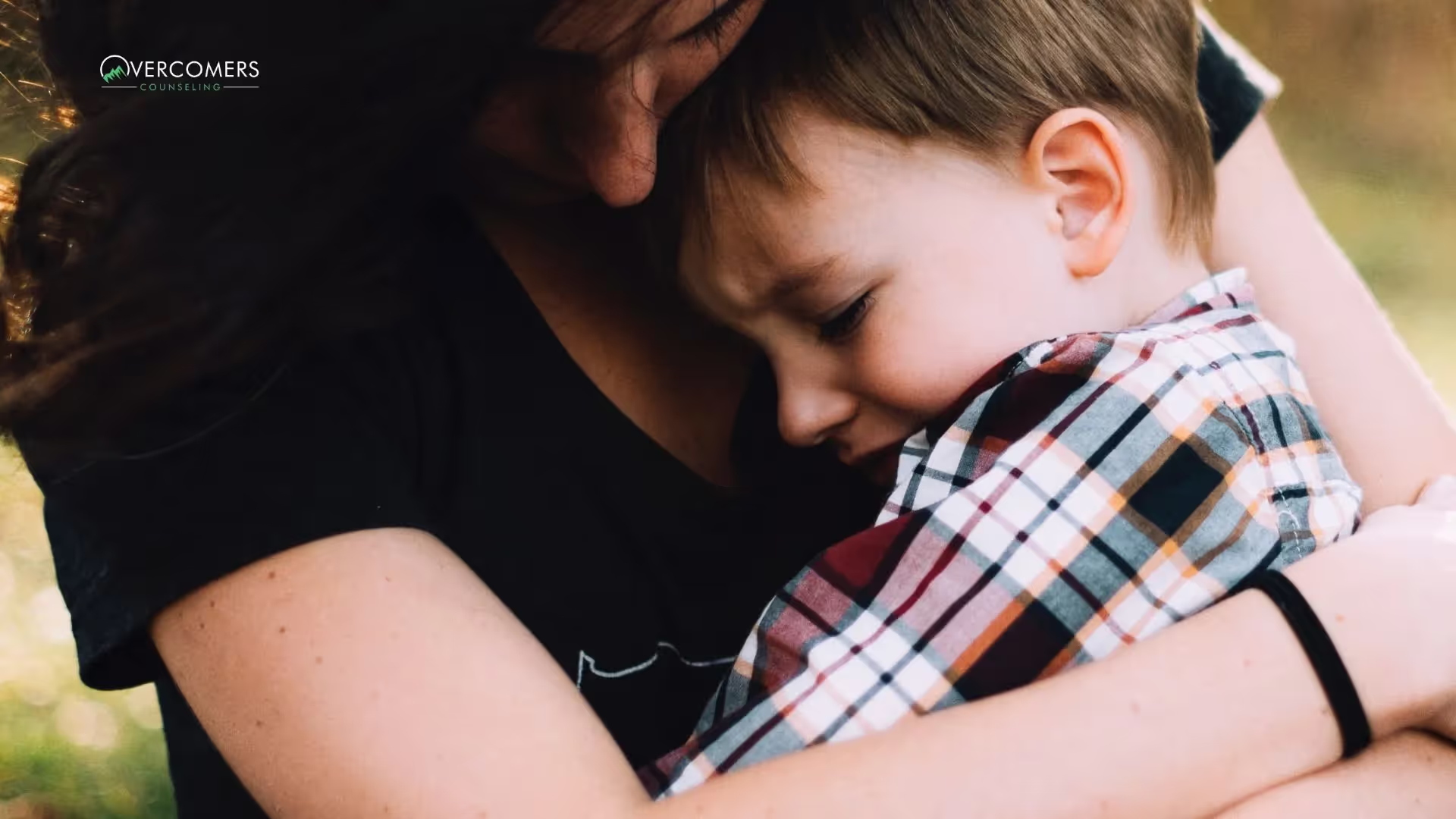At some point, a child will experience death either through the loss of a beloved pet or an elderly family member or by any other means. At this point, your...

At some point, a child will experience death either through the loss of a beloved pet or an elderly family member or by any other means.
At this point, your child might need your support for grief processing.
This is why it is important to teach your child about loss.
Even for adults, death can be a difficult topic to discuss.
Some parents struggle to raise the concept of death with their children.
However, one of the most effective ways to teach your child about loss is by introducing loss to them early.
When you want to teach your child about loss, try to avoid using euphemisms and other indirect literary terms.
A child might misunderstand the common phrases associated with death.
This might just lead to an even more difficult conversation along the line.
Encouraging questions is another excellent method of teaching children about loss.
After discussing death, children will likely want clarification and assurance with their questions.
When you listen to their questions, you can address their concerns.
Find out effective ways to teach your child about loss below.
Preparing in advance is an effective way to teach your child about loss.
You might find it uncomfortable to discuss the concept of death with a child.
However, it might be easier to teach your child about death by starting small.
Although death is typically a gloomy subject, it is one that surrounds us.
For instance, animals and plants die and restart the cycle of life.
You could introduce the idea of death with the loss of a pet fish or a plant that died.
Rather than responding to a loss directly affecting you or your child, you could explain earlier.
The right age to teach your child about death varies depending on the child and the circumstances.
Consider when you think it is a fair time based on how your child is progressing.
Your child would be more likely to learn about loss without having any trauma in this instance.
Choosing to delay the conversation might only make teaching your child about death more difficult for both parties.
You might find discussing death easier than it seems.

It is understandable to struggle to figure out how to explain death to your child.
However, the answer is that you simply have to explain the concept of death to your child.
Although metaphors and euphemisms might be useful in some cases, consider being direct about what death is.
It is possible that metaphors and euphemisms might lead to misunderstandings.
For instance, saying, "your grandpa has gone to sleep," might be interpreted as just sleeping.
In comparison, saying "your pet fish is no longer alive" lets your child understand there will not be a return for the pet fish.
A parent's desire to protect their child from pain or hurt is natural.
This is why it is understandable to have parents tempted to use euphemisms when they break the news to their children.
However, when you teach your child about loss clearly, you protect your child from evitable pain.
You can choose to add consoling words about death after explaining what it is.
Some context might help your child to process the loss.
For instance, you might mention that grandpa was sick for a while and is no longer in pain.

Learning about death could be an intense experience.
Your child might be scared of losing other people or things.
This is why ensuring your child has comfort is essential for you to teach your child about loss.
Remember that children think differently from adults.
Although it seems unnecessary, try to assure your child about how death occurs independently of their actions.
Bringing your child comfort will make it easier for you to actually discuss death.
Faith in a religion or an afterlife is essential to the grieving process of most people.
Consider sharing the thoughts that comfort you about death.
A child might need physical support, like a hug and emotional support.
In the short term, you can make your child relax.
In the future, your child will likely be better at processing losses.
Your reassurances can form a core part of the child's belief system.
Questions are a valuable tool that children use to learn.
Naturally, a child might need clarification on some things you have explained.
Questions usually help to address other doubts from your child.
Generally, questions from children are welcome.
However, since discussing death can be difficult, some parents could be tempted to gloss over details even when asked questions.
For instance, a child could ask, "Will you die too?" or "why did they die?"
Try to remember that properly answering those questions can bring relief to your child.
You should also consider asking your questions.
Just to understand if your child really understands you.
One of the best ways to teach your child about loss is by encouraging questions.
You could consider anticipating some questions from your child before having a discussion.
This will give you a better chance of remaining composed.
An important aspect of dealing with loss is to have a customary ritual.
Each culture has its way and rituals that accompany the loss of a person. It is essential that you also pass on the knowledge of your rituals.
You can teach your child about your culture and how the after-death ceremonies occur.
Nowadays, most people have a funeral arrangement and a memorial service.
There might be other details about a particular culture you might choose to mention.
Funerals might be too scary for children of a certain age.
You could also choose to only mention what happens at a funeral to a child.
This might allow you to wait until the child is ready before attending a funeral.
Discussing your customary rituals is a vital part of teaching your child about loss.
You can expect all sorts of questions from your child.
Try to focus on explaining the entire funeral proceedings.
Loss is an inevitable part of life.
One of the best ways to provide grief support for your child is by teaching your child about losses.
There are many effective ways to teach your child about loss such as preparing in advance, explaining death, offering comfort, encouraging questions, and discussing customary rituals.
What to Say to a Child When Their Parent Dies: 7 Tips | Cake Blog (joincake.com)
Death: how to talk about it with children | Raising Children Network
How to Explain Death to a Child, A Step-by-Step Guide (parents.com)
How to Teach Your Children About Death | Boo Roo and Tigger Too
Talking to Kids About Death and Grief: 10 Comprehensive Tips - Whats your Grief
Yes, we provide supportive counseling for family members who are struggling with the loss of a loved one. Our compassionate therapists can help you gain insight into your feelings and provide constructive strategies to cope with the pain of bereavement.
Grief can seem worse in the morning as the reality of the loss is often one of the first thoughts upon waking. This can be particularly true if you shared many mornings with the person who has passed away during wonderful years spent together.
There are many ways you can honor your loved one's memory during the holidays. You could decorate in their favorite colors, play their favorite music, make their favorite food, or even just talk about them often throughout the holiday season. You could also create a new tradition in their memory, such as planting a tree or making a donation in their name.
Ignoring grief can exacerbate symptoms and make it more challenging to manage over time. This can result in a negative impact on your personal, professional, and social life, leading to feelings of isolation, chronic sadness, and even physical health complications.
Grief may feel worse at night because sleep disturbances are common during the grieving process. As nighttime falls, distractions diminish and we're left alone with our thoughts, which can make the loss feel overwhelming.
The duration of grief counseling varies for each individual, depending on the severity of their grief and their progress in therapy. Our therapists will regularly assess your progress and adjust your treatment plan as needed.